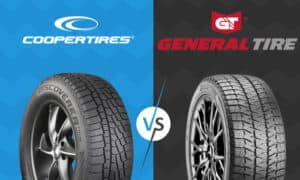Context of Transport Climate Action
Bin 2 Barrel is a project in which non-recyclable plastics will be processed into diesel. By doing solves two problems at once: firstly it reduces waste and uses plastic that would otherwise end up in landfill or be incinerated; and secondly it reduces dependency on fossil fuels and saves 2.3 KG Co2 emissions per liter of diesel produced.
Currently 9 million tons of plastic is being incinerated in Europe per year and 9.5 million tons of plastic will end up in landfills. Bin 2 Barrel will transform 35,000 tons of plastic into 22.5 million liters of diesel per year in the first phase. In the second phase, from 2018-2019, Bin 2 Barrel will scale up to 170,000 tons of plastic per year and produce 112.5 million liters of diesel.
Description
Roughly 7% of crude oil globally is used to make plastics. The majority of household plastic is either recycled (26%), sent to landfill (38%) or incinerated (36%)after use.
Using non-recyclable plastics to make diesel avoids landfill and environmental pollution. Traditional incineration only captures 25%-30% of the energy whilst the Bin 2 Barrel process is able to capture some 85% (approximately 3 times more).
Implementation
Bin 2 Barrel has been working in close corporation with local and national authorities in the Netherlands. It will start building the plant in Q1 2016, and start operations in Q2 2017. The diesel produced will be sold to a local company that has a retail network for its distribution; ranging from maritime transport to automotive outlets (via public filling stations).
Benefits
- Bin 2 Barrel will save approximately 51,735 tons of Co2 emissions by avoiding incineration.
- Lengthening the life and product cycle of oil-plastics-oil by reusing the waste products and turning them into fuel
- Reducing the dependency of fossil sources for transport energy.
- Reducing political risks and increasing national energy security in relation to the fossil fuel
- Stimulate new sustainable business models and help create local micro-economies by creating a market for waste plastic. This will not only help reduce CO2 emissions from using an alternative fuel for transport but also reduce the amount of non-recyclable plastic that today is thrown away. For example currently every day 20 million tonnes is thrown into the ocean ands end up polluting the natural environment (the so called Plastic Soup).
Potential for scaling up
After the first plant is built in area of the Port of Amsterdam, Bin 2 Barrel expects to quickly scale up to 5 plants. In addition, Bin 2 Barrel will develop similar projects in the UK and in the rest of Europe. The potential for these installations /projects is approximately 500 in Europe alone, which would deliver a CO2 reduction of 25.850.000 tonnes per year.
Initial funding for construction is still difficult due to the lack of experience of banks with this technology, in spite of a positive technical Due Diligence.
A second challenge is to claim the benefits of using waste for the production of fuel. Presently the CO2 reduction is not recognized and this type of diesel cannot be classified as biodiesel. As such the producers neither benefit from the price premium of biodiesel, compared to fossil fuel-based diesel, nor are able to profit from the CO2 advantages by selling any carbon credits.
In addition, the producers do not enjoy preferential financing arrangements and credit rates that can be obtained by biodiesel producers. Presently European Directives impose a blend of 6.25% of biodiesel into the traditional diesel mix but this alternative fuel cannot yet be used in this growing market due to its fossil fuel base primary source. Therefore the Fuel Quality directive is an important instrument for Bin 2 Barrel and it is also working closely together with the Dutch Authorities to find suitable solutions.



